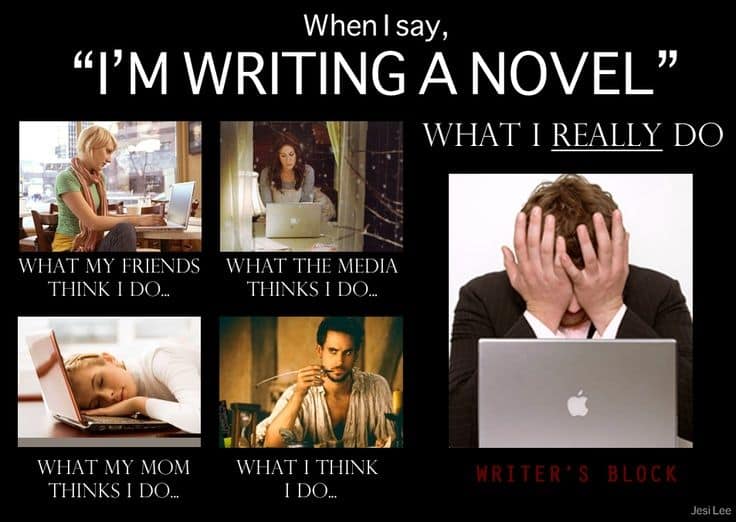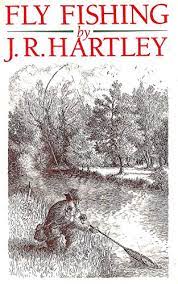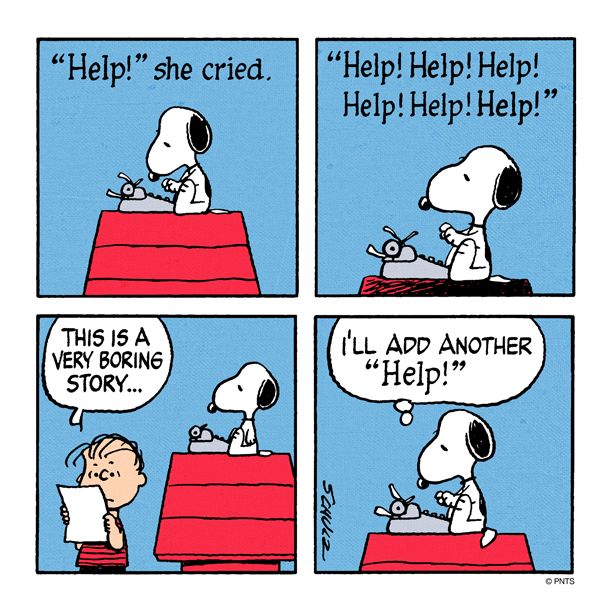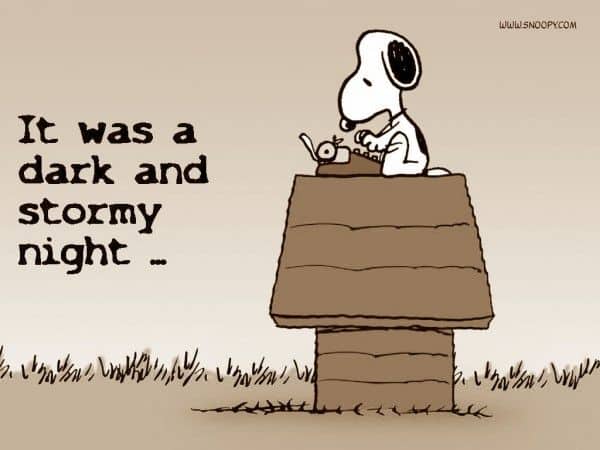
Writing a novel is the realisation that there are 67 different ways of describing a forest, none of which are interesting.
The process invokes a strange time/reality dilation effect on the author. They experience a lifetime’s worth of writing where they pour their heart and soul into endless words, each one extracted through excruciating pain, doubt, and bouts of insanity – only to discover they’ve written just three pages and it’s the Acknowledgments section.
This ultimate guide will help steer you around the novel maze and put you on the right path to publication!*
THE IDEA

You’re going to be working on this novel for a LOOOOONG time, so you need to come up with an idea big enough for a novel that is also creatively satisfying to keep you engaged through thick, thin and multi-dimensional hijinks. Most importantly, it needs to be sellable. An old lady who writes crime mystery novels lucky enough to have murders committed around her all the time is a very sellable idea, if not already done a million times. An old demi-god who writes cookbooks and is lucky enough to have worshippers donating recipes is certainly more original but let’s be honest, “Lasagne, I Cooked”** will never outsell a “Murder, She Wrote” style novel.
THE OUTLINE
The outline is of the utmost importance. You don’t want to write yourself into a corner, a dead end, or a pyramid full of booby traps – therefore you must have the entire story outlined in such intricate detail it is the novel in all but name only.
TO PROLOGUE OR NOT TO PROLOGUE – THAT IS THE QUESTION
If you’ve written the outline as per the above, congratulations you’ve written your novel! Well done! You can skip to Part 2 – Getting Published. This is what it means when authors say, “The book practically wrote itself” apart from those who hire Ghost-writers.
If like a normal person, you’ve written just a few pages for the outline and it’s sketchy at best, you’ll have to make the ultimate decision – start with Chapter One or a Prologue? WARNING – If you research this controversial subject online, you run the risk of an aneurysm. Many say prologues are the devil’s work, while others suggest they are simply an introductory chapter to your story, and there isn’t anything wrong with that. These ‘others’ are then accused of being Satanists.
If in doubt, write your prologue but call it Chapter One.
CHAPTERS

Have you ever read a book and taken note of the chapter names or their length? No, me neither. However, when writing a novel, you will obsess over this. Should you call it Chapter 1 or Chapter One? Should you give the chapter a name? If so, what is a cool name which reflects the chapter PERFECTLY? Many moons will be lost on this quest.
Then, how long should the chapter be? Is this one too short? OMG! Chapter 3 is twice as long as Chapter 6! Panic attack!
Luckily there are no clear answers to either of the above quandaries. Just do whatever.
CREATIVE WRITING

You must find a way to fill these chapters with words – a lot of words. If you come from the world of screenwriting, prose is the opposite of pretty much every piece of advice you’ve ever been given. More is not less, luscious instead of lean and past tense instead of the present. It is worth noting that every ‘rule’ is only a rule if you choose to follow them, or they become enforced by a dystopian prose dictatorship which will probably be called the Author Management Authority Zealous Oversight of Nondisclosures – otherwise known as AMAZON.
Creative writing means finding ways to make one sentence last three pages in a way that doesn’t make the reader remove their eyeballs with a spoon. The good news is you can use the character’s thoughts to fill white space. There is nothing more satisfying than your hero engaging in a long internal monologue about how much they love coffee. Just hold on a moment, I need to go find a spoon.
Another way to create more words is to engage in descriptions so vividly detailed, that the reader feels transported to the scene – if they can be bothered to read it and don’t skim to the more interesting parts as I do.
Apart from that it’s the usual beginning, middle, end – good person versus bad person – other characters, blah blah blah dialogue and happily ever after/twist or “Now go buy book 2 to find out what happens next!”
EDITING

You’ve written The End on the first draft. Well done! You’ve managed to accomplish something many thousands of people have achieved throughout most of human history, but on the other hand many thousands more never even bothered, so there is that I guess.
Now, it is essential to hire a good editor who will not only help you with typos and grammar but also the structure of the story, the characters and improve the overall readability of your manuscript. You need it to be in the best possible shape it can be before you submit it to agents, publishers or even if you *gulp* admit defeat and self-publish.
You all saw the word ‘hire’ and switched off after that didn’t you? Ah well, the cheaper version is to split all the chapters into separate documents – run a spell and grammar check with free online tools, force a few family members and close friends who owe you favours (bribery really helps here) to read it, incorporate their notes (that you agree with) and the job is a good un! Two drafts are enough, yes?
In Part 2 (or should I call it Part Two? I can’t decide!) I’ll go over submitting queries to agents, and publishers and if all else fails, how to self-publish.
* Self-Publication only.
** Lasagne, I Cooked – now available on my website for a limited time only.




Haha. I loved this. I am a screenwriter and about to turn a completed screenplay into a book. I too skim over the scenic routes in books unless it’s essential to the plot.
Clever is the writer who sneaks it in so it’s not obvious that they are painting pictures for idiots who don’t know that the sky is blue.
However I’m determined to do it, blue sky and all if necessary.
Thank you, Barbara. I’m glad you enjoyed the blog, scenic descriptions and all. Best of luck with adapting your screenplay. The only book I’ve written so far was adapted from my feature screenplay and I had the most amazing time writing it. It was hard, probably the hardest thing I’ve ever done but I loved it. So much so, I think I’m going to write two sequels and create a series!
Mark Renshaw, Love your light-hearted approach to writing a novel.
We all need a healthy dose of humour in life and in our novels too.
Thanks…
You are most welcome. I’m glad you enjoyed it.